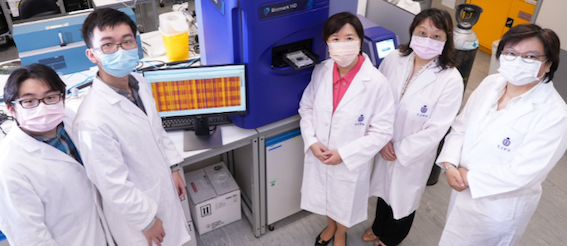
image credit- HKUST
An international research team led by Hong Kong University of Science & Technology (HKUST) in China has developed a simple but robust blood test from Chinese patient data for early detection and screening of Alzheimer’s disease (AD) for the first time, with an accuracy level of over 96%.
A team led by Prof. Nancy IP, Vice-President for Research and Development at HKUST, has identified 19 out of the 429 plasma proteins associated with AD to form a biomarker panel representative of an “AD signature” in the blood.
Based on this panel, the team has developed a scoring system that distinguishes AD patients from healthy people with more than 96% accuracy. This system can also differentiate among the early, intermediate, and late stages of AD, and can be used to monitor the progression of the disease over time. These exciting findings have led to the development of a high-performance, blood-based test for AD, and may also pave the way to novel therapeutic treatments for the disease.
The work was conducted in collaboration with researchers at University College London and clinicians in local hospitals including the Prince of Wales Hospital and Queen Elizabeth Hospital.




